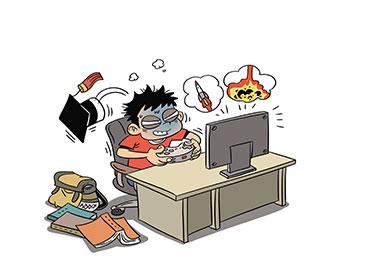“When a student indulges in the freedoms of college life, come graduation time, they may barely make it or have already flunked out. Compared to outstanding students, it’s like night and day. They just can’t compete.”
Xu Jiangrong, president of China Jiliang University in Hangzhou, Zhejiang Province, during a ceremony for the new semester warning against the temptations of online gaming, as it involved 90 percent of academic expulsions at the school
“I’ve visited many places in Japan, and when talking with different communities and groups, I found they were very interested in communicating with China. The silent majority actually hopes the two countries maintain a good relationship, but the present political and social atmosphere [in Japan] makes it hard for those rational voices to be heard.”
Kong Xuanyou, Chinese Ambassador to Japan, in an interview with news portal The Paper in early July for the 50th anniversary of diplomatic relations between China and Japan
“Giant pandas are not an ‘endangered’ species any more. But sadly, ‘panda-huggers’ (a somewhat derogatory term in the US for Americans who support good Sino-US relations) are endangered. Now they need protection and conservation.”
Qin Gang, Chinese Ambassador to the US, at Pandaversary Night, an event held by the Chinese Embassy in Washington, DC on August 24 to celebrate the 50th anniversary of Sino-US cooperation in giant panda protection. China gifted the Smithsonian’s National Zoo its first pair of giant pandas, Ling Ling and Hsing Hsing, in 1972
“We must make survival our chief priority and pull back or end all marginal businesses across the board. We should pass the chill down to everyone.”
Ren Zhengfei, founder of Huawei, in an internal letter that the company must turn from pursuing scale to profit and cash flow to weather the next three years of global economic slowdown and declining consumption
“Let’s be clear, the problems arising in the real estate and land markets are because of the accumulation of many bubbles over the years. Those bubbles existed before the government rolled out restriction policies [on real estate investment]. If we do not squeeze the bubbles out, the problems will get worse.”
Wang Xiaolu, deputy director of the Beijing-based National Economic Research Institute, warning that real estate market is nearly saturated in an interview with NewsChina’s Chinese edition
“The Chinese mainland amplifies Hong Kong’s economy. But it can only do so when Hong Kong introduces the world to the mainland and promotes the mainland to the world. This economic connection brings the world’s resources through Hong Kong to the Chinese mainland and shows the mainland’s economic power to the world.
Gu Qingyang, an associate professor at the Lee Kuan Yew School of Public Policy, National University of Singapore, in an August interview with China News Service
“The political situation in the US determines that its international policy will not be as stable as China’s. Its previous administration paid little attention to Southeast Asia, and the Biden administration is preparing for midterm elections. With less than two years in office from now, this will shift Biden’s focus to domestic policies, so I don’t think they will do much for their Indo-Pacific strategy.”
Hu Bo, director of the South China Sea Strategic Situation Probing Initiative, an independent research organization, in a recent interview with China News Service
“The principal contradiction we are facing is the same as the world is facing – surplus of financial capital. China has entered the phase of surplus capital.”
Wen Tiejun, professor at the Renmin University of China in Beijing, at the 2022 Yanqi Lake Forum held in Beijing on August 5, suggesting that rural revitalization, which the central government proposed in 2017, is a new area for absorbing investment
“In general, the latest round of the yuan depreciation was because the Fed raised interest rates and tightened liquidity, which has caused some hot money to withdraw from stock and property markets. Therefore, we have to strengthen risk assessment of short-term capital outflows. We can’t only focus on trade surplus and direct foreign investment statistics.”
Sun Lijian, director of the Financial Center, Fudan University, in an article for newspaper 21st Century Business Herald in late August

 Old Version
Old Version




